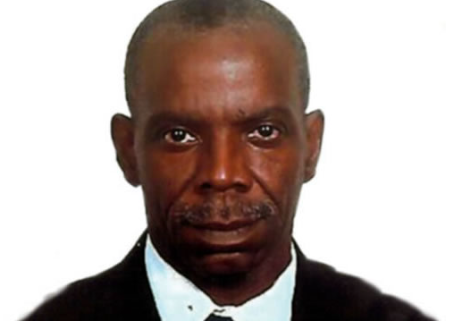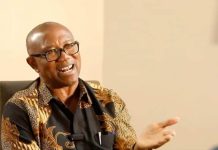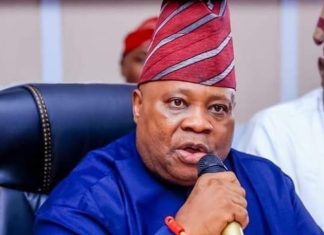

The Fulani Sullubawa have ruled over the Kano Emirate since 1819, after Usman dan Fodio’s Islamic revival of 1804 swept across the Hausawa nations founded by legendary Bayajidda, said to have come from Baghdad in Iraq.
Bayajidda’s first son, Bawo, by Queen Amina of Daura, begat six sons who ruled Daura, Katsina, Zazzau (Zaria), Gobir (Sokoto), Kano and Rano. Another son, by a Kanuri woman, ruled Biram named after himself. The seven sons of Karbagari, his son by a Gwari woman, ruled Kebbi, Zamfara, Gwari, Jukun, Ilorin(?), Nupe and Yauri.
Fulani Emir Abdullahi Muhammad ibn Abbas reigned from 1928 till 1954. His first son, Muhammadu Sanusi I succeeded him. But his reign was terminated in 1963 by Northern Nigeria Premier Ahmadu Bello.
His younger brother, Ado Bayero, a former police officer, serving as Nigeria’s Ambassador to Senegal, who succeeded him, died in 2014. Former Central Bank of Nigeria governor, Lamido Sanusi Lamido, son of Ambassador Aminu Sanusi, son of Emir Sanusi I, became Emir Muhammadu Sanusi II.
Because Abdullahi ibn Abbas is the father of both Emir Muhammadu Sanusi I and Emir Ado Bayero, Emir Aminu Bayero and Ambassador Aminu Sanusi, father of Emir Muhammadu Sanusi II, are first cousins.
Emir Muhammadu Sanusi II is therefore second cousin to Emir Aminu Ado Bayero, and even to his own wife, a sister to Emir Aminu Ado Bayero. Thus, Emir Ado Bayero, father of Emir Aminu Ado Bayero, is his granduncle, having been an uncle to his father.
The messy drama playing out between them is a classic game of thrones, of conspiracies and counter-conspiracies that pitch blood relations against each other in a dangerous and unending power play.
The Yoruba would say, “Gambari pa Fulani, ko l’ejo nnu,” which aptly describes this situation. When translated into English, it means there are no consequences if a Gambari (or Hausa) kills a Fulani!”
Former Israeli Prime Minister, Menachem Begin, could have said the same thing. When Christian Phalangists murdered Palestinians in Lebanon in 1982, and world public opinion seemed to be looking toward Israel as the culprit, Begin thundered, “Goyim kills Goyim, now they want to hang the Jew!”
Though Goyim, is a pejorative word used by Jews to describe non-Jews or Gentiles, and the Yoruba phrase is insensitive and (probably) disrespectful of the Hausa and the Fulani, both expressions provide a metaphorical aggregate of people of the same ilk who wickedly plan the downfall of each other.
In 1982, Kano State Governor, Abubakar Rimi, who had described Emir Ado Bayero as “nothing, nothing, nothing, but a public servant… whose appointment is at the pleasure of the governor of the state,” carved up the Kano Emirate into Kano, Dutse (now in Jigawa State), Auyo, Gaya and Rano emirates.
But his successor, Aliyu Sabo Bakin-Zuwo, also a member of Aminu Kano’s People’s Redemption Party, reversed him and downgraded the emirs of Dutse, Auyo and Gaya to district heads, that the Yoruba would call “baale.”
In 2019, Governor Abdullahi Ganduje of Kano dusted up the grace notes of Rimi and found an explanation — insubordination– to dethrone Emir Muhammadu Sanusi II, replacing him with Aminu Ado Bayero, second son of late Emir Ado Bayero.
Ganduje got the Kano State House of Assembly to enact a law to create the Kano, Karaye, Bichi, Rano and Gaya emirates out of the Kano Emirate. He dethroned Emir Sanusi II, replacing him with five new emirs, including Emir Aminu Ado Bayero of Kano.
But, like Bakin Zuwo, the new Kano State Governor, Abba Kabir Yusuf, a protege of former Governor Rabi’u Kwankwaso, predecessor, boss and (no longer) political godfather of Ganduje, wiped off Ganduje’s reenactment of Rimi’s scheme.
He got the Kano State House of Assembly to repeal the Ganduje legislature’s Law, returned his new emirates to the original Kano Emirate, and recalled Emir Muhammadu Sanusi to replace Emir Aminu Ado Bayero.
Now, Emirs Aminu Ado Bayero and Muhammadu Sanusi II appear to be holding court simultaneously to one of two sets of Kanawa people, especially because the courts have been speaking from both sides of their mouths.
While Emir Muhammadu Sanusi II is attending the state government’s distribution of fertilisers to farmers, Emir Aminu Ado Bayero is bringing TV cameras to show to Governor Yusuf and Emir Muhammadu Sanusi II his (rented?) crowd at a Koranic recital.
After the unnecessary kerfuffle, Governor Yusuf turned round to recreate the emirates of Gaya, Rano and Karaye, and styled their monarchs second-class emirs to the Emir of Kano. For inexplicable reasons, he left out Bichi Emirate, whose emir was a younger brother of Emir Aminu Ado Bayero.
This pitiful salad of intricate spaghetti tangles is telling you that the Kano Emirate is in the throes of a grand family feud that politicians are exploiting for electoral advantage and to the detriment of the Kanawa people.
By the way, former Kano State Governor Rabiu Kwankwaso, formerly of the All Progressives Congress, installed Emir Muhammadu Sanusi II in 2014, to spite President Goodluck Jonathan of the Peoples Democratic Party. Governor Ganduje was his Deputy.
It’s interesting that members of the same family, descendants of Emir Abdullahi Sanusi ibn Abbas, who traditionally reign for life, allow themselves to be used as pawns on the chess board of politicians who are here today but gone tomorrow.
That is the demeaning extent to which British colonialism and its vestiges have reduced Nigerian monarchs and the traditional institutions from where they derive their legitimacy, authority and relevance.
It appears that the governments run by the military, an institution that remains one of the most enduring vestiges of British colonialism, only came to subdue and conclude the subjugation of the traditional rulers to the Nigerian state. And their civilian successors have merely been playing according to script.
It explains why former President Olusegun Obasanjo, a retired General of the Nigerian Army that is run along British traditions, ordered some Yoruba traditional rulers in Oyo State to stand up and sit down as if he was addressing soldiers of the other ranks.
Incidentally, the disgrace meted out to traditional rulers in Nigeria largely occurs in North-West and South-West geopolitical zones, except for the occasional disrespect openly shown to traditional rulers by Nyesom Wike when he was the governor of Rivers State.
During Nigeria’s First Republic, Premier Ladoke Akintola of Western Region, reportedly humiliated an Odemo of Isara, whom he paid an annual salary of one penny per annum. His predecessor, Obafemi Awolowo, did the same to the Ilesha monarch under the nose of the British colonialists.
Awolowo, who dethroned an Alaafin of Oyo, who is rumoured to have used diabolical means to afflict an Awolowo political associate with madness, seemed to have influenced a military governor of a western state to oust an Olowo of Owo.
Whenever a state governor performs that demeaning gesture of handing a staff of office and certificate of recognition to a newly installed monarch, you get a sense of the extent to which Nigeria’s traditional institutions have been debased and disrespected.
Someone suggested that traditional rulers should be supervised by a committee of the National Council of State, sans state governors. If they are insulated from the whims of governors, traditional rulers can become impartial sounding boards to all levels of government.
And maybe their insights, unbiased and without fear of repercussions, may provide ethical directions for governance in Nigeria.
Join Television Nigerian Whatsapp Now
Join Television Nigerian Facebook Now
Join Television Nigerian Twitter Now
Join Television Nigerian YouTUbe Now





